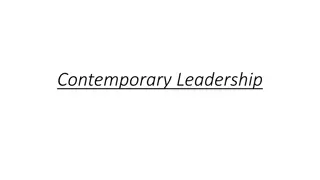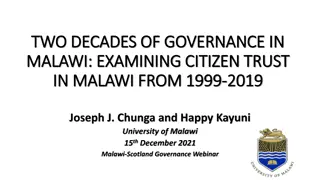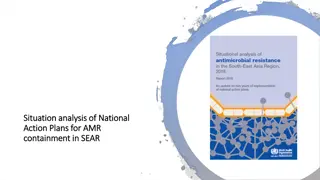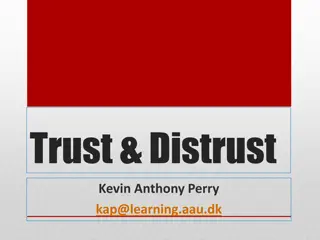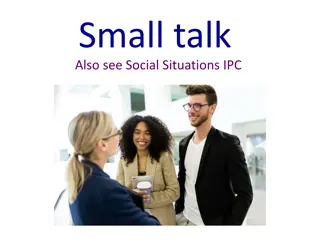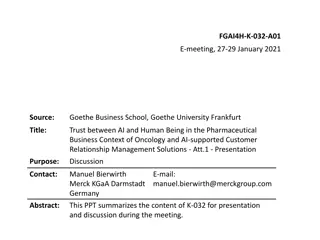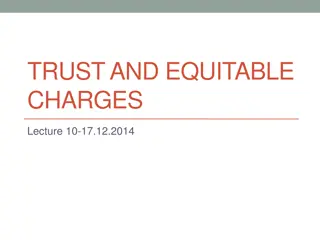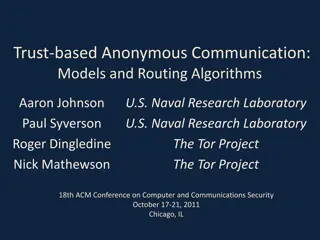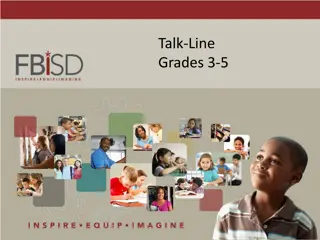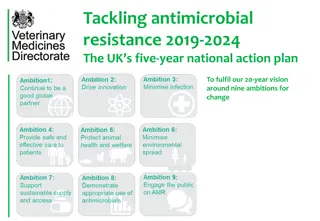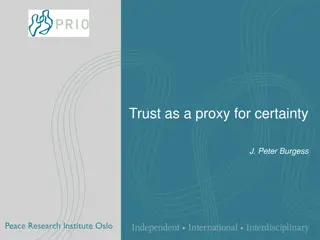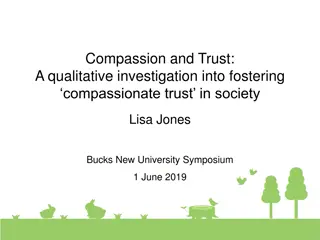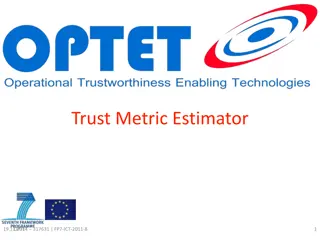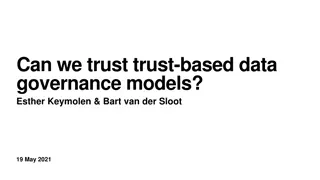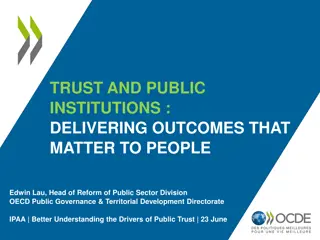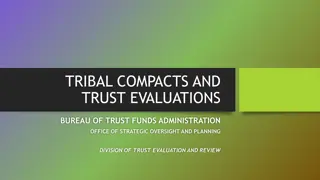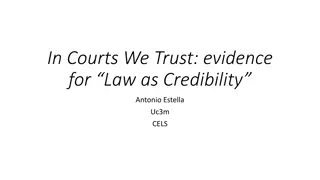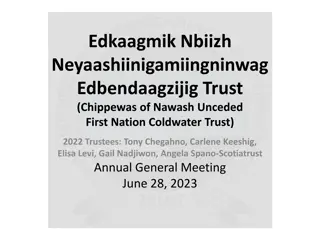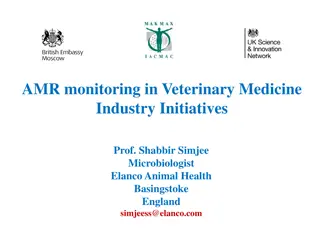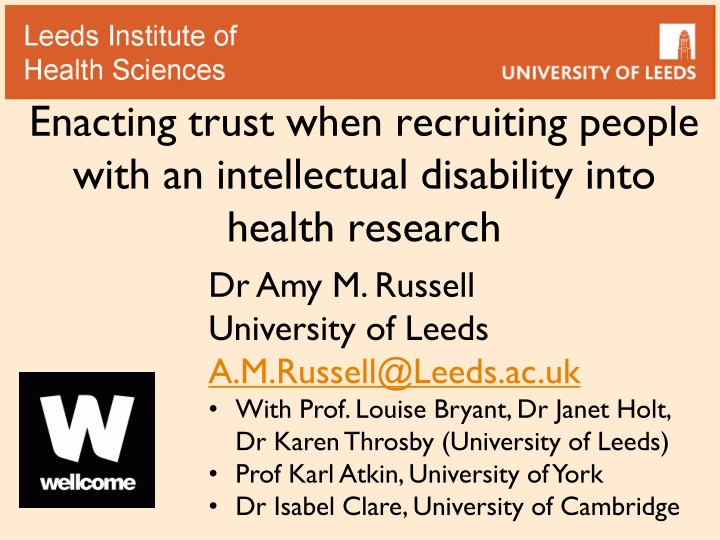
Enacting Trust in Health Research with People with Intellectual Disabilities
Explore the complexities of enacting trust when recruiting individuals with intellectual disabilities into health research. The study sheds light on vulnerability, rapport building, ethical considerations, and the need for disabled voices in research design.
Download Presentation

Please find below an Image/Link to download the presentation.
The content on the website is provided AS IS for your information and personal use only. It may not be sold, licensed, or shared on other websites without obtaining consent from the author. If you encounter any issues during the download, it is possible that the publisher has removed the file from their server.
You are allowed to download the files provided on this website for personal or commercial use, subject to the condition that they are used lawfully. All files are the property of their respective owners.
The content on the website is provided AS IS for your information and personal use only. It may not be sold, licensed, or shared on other websites without obtaining consent from the author.
E N D
Presentation Transcript
Enacting trust when recruiting people with an intellectual disability into health research Dr Amy M. Russell University of Leeds A.M.Russell@Leeds.ac.uk With Prof. Louise Bryant, Dr Janet Holt, Dr Karen Throsby (University of Leeds) Prof Karl Atkin, University of York Dr Isabel Clare, University of Cambridge
Vulnerability: Research regulation frames people with learning disabilities as a vulnerable group. Trust may be too readily given, it is assumed. Research environments are pressured and unsupportive: This is likely to create barriers to an open and honest environment in which researchers can share mistakes for constructive scrutiny in order to effectively progress and improve. (Wellcome Trust 2020; Moran et al. 2020). Autoethnography exposes the interplay of power and trust, examining the multiple layers of ambition, guilt, embarrassment and confusion not readily accessible in interviews or observation (Throsby 2018).
I was thinking I need to build some form of rapport with this guy, or this is just a really weird experience for him, so then I would smile, and I would nod, and I would join in. You are building rapport with him, so that he thinks positively about you so that he can consent to the research which is fine. But it s done for a reason; I mean, I took time to think, I think my face is frowning. So, its purposeful but it s also normalinteraction if you know what I mean and I can t quite draw the line between those two things He is also my first participant, I wanted to get a participant obviously I came all the way here should I have walked away? because I don t think he fully understood the research project?
Trying to do the right thing Researcher/Clinician discomfort Bending rules I m really not supposed to Research beyond a person s frame of reference. Dimensions, temporality and degrees of consent & understanding I didn t feel very comfortable I took time to think, I think my face is frowning. I need to build some form of rapport with this guy Emotional labour & the erasure of affect Building rapport/dishonest emotions Performative bodies
Conclusions Disabled voices rarely heard in research design and approvals Causes stress and emotional labour on researchers in the field Needs changes in research design and approval processes Thank you! Any Comments or questions to A.M.Russell@leeds.ac.uk
Enacting trust when recruiting people with an intellectual disability into health research Amy M. Russell I m really not supposed to I didn t feel very comfortable . I took time to think, I think my face is frowning. Autoethnography exposes the interplay of power and trust, examining the multiple layers of ambition, guilt, embarrassment and confusion not readily accessible in interviews or observation (Throsby 2018). Trying to do the right thing Researcher/Clinician discomfort Bending rules Research environments are pressured and unsupportive: This is likely to create barriers to an open and honest environment in which researchers can share mistakes for constructive scrutiny in order to effectively progress and improve. (Wellcome Trust 2020; Moran et al. 2020). Building rapport/dishonest emotions Emotional labour & the erasure of affect Performative bodies


